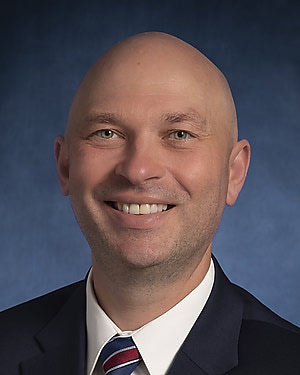Research Lab Results
-
Eun Ji Shin Lab
Research interests in the Eun Ji Shin Lab include clinical research on obesity and the effect on GI neoplasia/malignancy.
-
Faria Lab
Andreia Faria's Laboratory focuses on investigating brain functions using MRIs. We develop and apply methods for processing and analyzing diverse MRI modalities in order to characterize distinctive brain patterns and to study multiple conditions, including neurodegenerative diseases, psychiatric disorders, and stroke. We use artificial intelligence to develop tools for brain MRI segmentation and quantification, promoting the means to perform reliable and reproducible translational research.
-
Felipe Andrade Laboratory
Research in the laboratory of Felipe Andrade, M.D., Ph.D., focuses on the mechanisms of systemic autoimmune diseases, particularly as they relate to the role of cytotoxic granule proteases in autoimmunity and viral clearance, mechanisms of autoantigen citrullination and pathways that control immune effector functions in autoimmune diseases. We currently focus on two principal areas: (1) defining the mechanisms that generate citrullinated autoantigens in vivo in rheumatoid arthritis and (2) understanding the pathways that control the activity of the peptidylarginine deiminase (PAD) enzymes in human neutrophils.
-
Florin Selaru Lab
Research interests in the Florin Selaru Lab comprise the molecular changes associated with the transition from inflammatory states in the GI tract (colon, stomach, biliary tree) to frank cancers. In addition, our current research—funded by the AGA, FAMRI and the Broad Foundation—works to further the understanding of cancer development and progression in the gastrointestinal tract.
-
Follow the Leader: Specialized Cancer Cells Lead Collective Invasion (Ewald Lab)
Research in the Ewald laboratory starts from a simple question: Which cells in a breast tumor are the most dangerous to the patient and most responsible for metastatic disease? To answer this question, we developed novel 3-D culture assays to allow real-time analysis of invasion. Our data reveal that K14+ cancer cells play a central role in metastatic disease and suggest that the development of clinical strategies targeting these cells will provide novel breast cancer treatments. -
Foster Lab
The Foster Lab uses the tools of protein biochemistry and proteomics to tackle fundamental problems in the fields of cardiac preconditioning and heart failure. Protein networks are perturbed in heart disease in a manner that correlates only weakly with changes in mRNA transcripts. Moreover, proteomic techniques afford the systematic assessment of post-translational modifications that regulate the activity of proteins responsible for every aspect of heart function from electrical excitation to contraction and metabolism. Understanding the status of protein networks in the diseased state is, therefore, key to discovering new therapies. D. Brian Foster, Ph.D., is an assistant professor of medicine in the division of cardiology, and serves as Director of the Laboratory of Cardiovascular Biochemistry at the Johns Hopkins University School of Medicine. -
Franck Housseau Lab
The Franck Housseau Lab focuses on the role of the microbiome in colorectal tumorigenesis and on developing a better understanding of the tumor immune microenvironment. The lab is currently working to define the biomarkers of a pre-existing antitumor immune response in metastatic colorectal cancer to define a population of patients eligible for checkpoint blockade therapies.
-
Franco D’Alessio Lab
The Franco D’Alessio Lab investigates key topics within the fields of critical care, internal and pulmonary medicine. We primarily explore immunological determinants of acute lung inflammation and repair. Our lab also investigates age-dependent lung immune response in patients with acute lung injury and acute respiratory distress syndrome (ARDS), regulatory T-cells in lung injury and repair, and modulation of alveolar macrophage innate immune response in ARDS. -
Frederick Anokye-Danso Lab
The Frederick Anokye-Danso Lab investigates the biological pathways at work in the separation of human pluripotent stem cells into adipocytes and pancreatic beta cells. We focus in particular on determinant factors of obesity and metabolic dysfunction, such as the P72R polymorphism of p53. We also conduct research on the reprogramming of somatic cells into pluripotent stem cells using miRNAs.
-
Frederick Sieber Lab
The Frederick Sieber Lab studies the impact of sedation on geriatric surgical patients—especially those undergoing orthopaedic or pelvic procedures—with the goal of preventing postoperative delirium. We are using electroencephalography to investigate the effect of sedation depth during spinal anesthesia. We are also working to determine the effects of using propofol for sedation in elderly patients as well as the effects of robotics and surgical positioning on cerebral blood flow.


